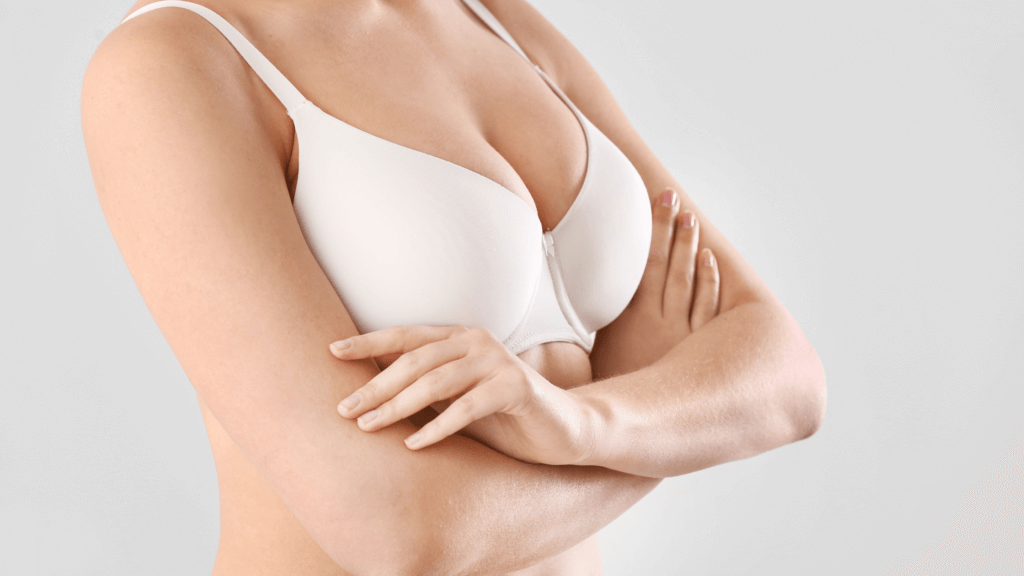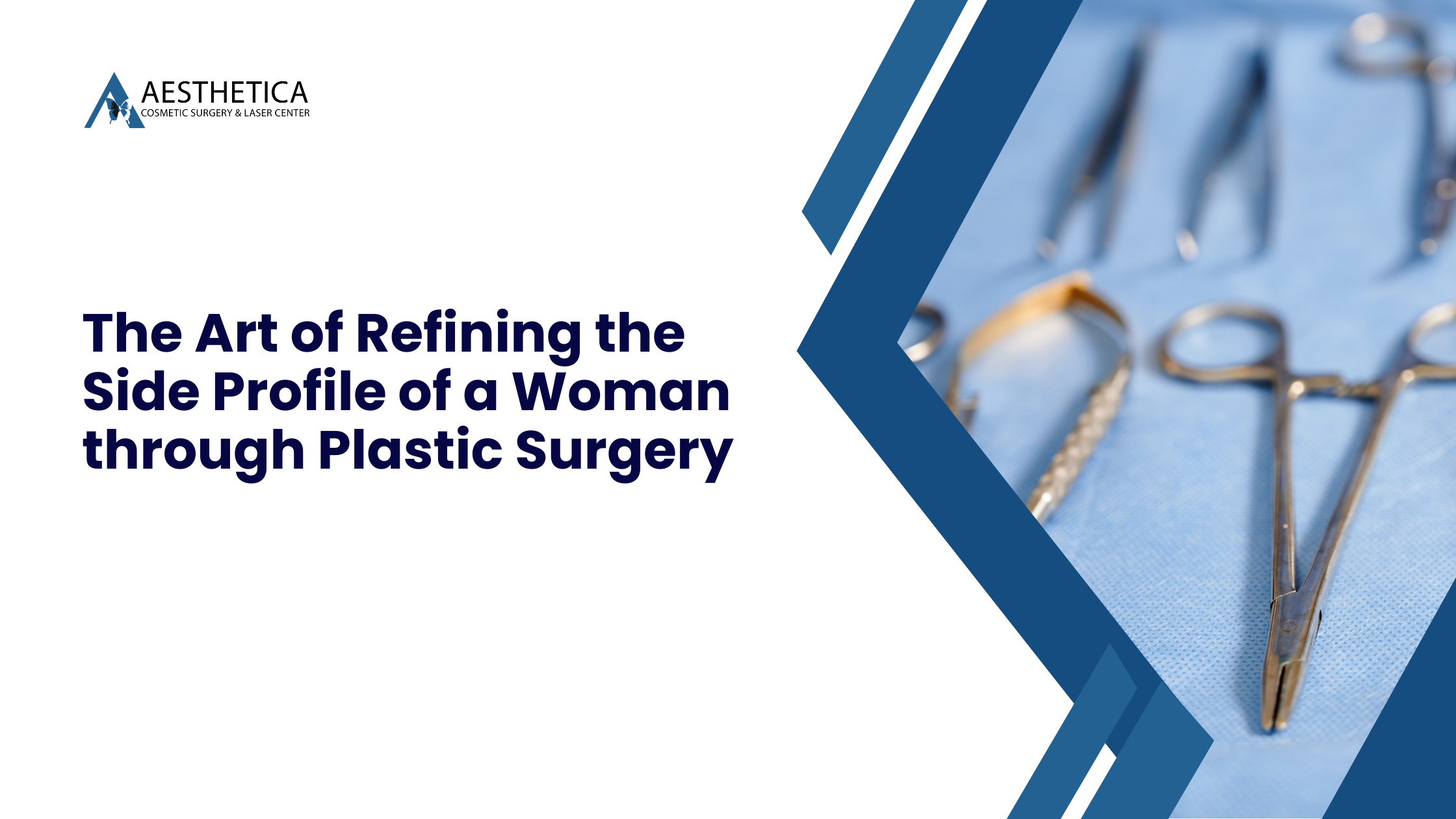Breast Reduction Surgery: What To Expect Before, During, and After the Procedure!9 min read

Aesthetica Editorial Team

Meet Jane, a charming, vibrant woman ready to wave goodbye to her troublesome bosom buddies. For years, she’s been toting around a cumbersome load, and now, she’s eager to experience the freedom of a lighter, better-proportioned chest. But, let’s be honest, the thought of going under the knife can be unnerving, especially when it involves such a delicate and personal area.
Enter Dr. Phillip Chang, a board-certified plastic surgeon known for making breast reduction surgery feel like a walk in the park. With a gentle touch, a reassuring smile, and a sparkling wit, Dr. Chang is here to guide Jane on her journey from discomfort to liberation. As an expert in his field, he’s not only marvelous at crafting a stunning silhouette but also skilled in alleviating the fears and uncertainties that accompany any surgical procedure.
Today, Jane and Dr. Chang will embark on a transformative adventure, banishing oversized baggage and unveiling newfound confidence and vitality!
What Is Breast Reduction Surgery?
Breast reduction surgery, also known as reduction mammaplasty, is a surgical procedure designed to reduce the size and weight of a patient’s breasts. This procedure involves the removal of excess breast tissue, fat, and skin to achieve a breast size more proportionate to the individual’s body and to alleviate any discomfort caused by overly large breasts
What Happens During the Procedure?

Breast reduction surgeries are typically performed under general anesthesia and can take several hours, depending on the surgeon’s technique and the extent of the reduction.
During breast reduction surgery, Dr. Chang creates incisions around the areola and vertically down the breast, removing excess tissue, fat, and skin as needed. The remaining breast tissue is reshaped, and the nipple and areola are repositioned to achieve natural-looking results. The incisions are then closed with stitches.
Who Is a Good Candidate for Breast Reduction Surgery?
The ideal candidate for breast reduction surgery experiences physical or emotional discomfort due to overly large breasts and is in good overall health. The following factors indicate that you are a suitable candidate for the procedure:
- Physical discomfort: Candidates often suffer from neck, back, or shoulder pain, as well as skin irritation or rashes beneath the breasts due to their size and weight.
- Limitations in physical activity: Overly large breasts make it difficult to engage in physical activities, exercise, or sports, thus impacting the patient’s overall quality of life.
- Emotional distress: Breast reduction surgery candidates battle with self-consciousness, anxiety, or depression because of their breast size, affecting their self-esteem and social interactions.
- Good overall health: A suitable candidate must be in optimal health without any uncontrolled medical conditions that could increase the risk of complications during or after surgery.
- Non-smoker: Smoking impairs the healing process. Candidates must be non-smokers or willing to quit smoking before the surgery.
- Realistic expectations: Ideal candidates clearly understand the potential outcomes of the surgery, including possible scarring and changes in breast sensation, as well as realistic expectations of the final results.
- Stable weight: Candidates must be at or near their ideal body weight, as significant weight fluctuations after the surgery will affect the final results.
Can Breast Reduction Surgery Be Performed on Men?
Yes, breast reductions can be performed on men, as well, under the name of gynecomastia surgery or male breast reduction. Gynecomastia is a condition in which men develop enlarged breast tissue due to factors like hormonal imbalances or weight gain. The procedure aims to reduce the size of the breasts, improve the chest contour, and boost the patient’s confidence and self-esteem.
The surgical techniques used for male breast reduction differ from those used for women, as their goals and anatomy are distinct. The procedure typically involves liposuction and/or excision of excess breast tissue, depending on the severity of the gynecomastia and the patient’s specific needs.
Is It Better To Get Breast Reduction Surgery Before or After Pregnancy?
The decision to undergo breast reduction surgery before or after pregnancy depends on individual circumstances and priorities. There are several factors to consider when scheduling this procedure:
- Breastfeeding: If you plan to breastfeed, we recommend waiting until after pregnancy and breastfeeding to undergo surgery. The procedure can affect the milk ducts and nipple sensation, impacting your breastfeeding ability. However, not all women experience issues with breastfeeding post-surgery, and surgical techniques have improved over time to minimize these risks.
- Changes in breast size: Pregnancy and breastfeeding can cause changes in breast size and shape. If you undergo breast reduction surgery before pregnancy, there is a chance that your breasts may increase in size or become less firm during pregnancy and breastfeeding, potentially altering the results of the surgery.
- Recovery time and lifestyle: Breast reduction surgery requires downtime for recovery. If you are considering having a child in the near future, you may prefer to wait until after pregnancy to avoid any potential complications during pregnancy or the postpartum period.
- Pain and discomfort: For some women, the discomfort and pain associated with large breasts are a significant factor in their decision to undergo surgery. If you are experiencing significant discomfort, you may opt to have surgery before pregnancy to alleviate these symptoms.
Ultimately, discussing your goals and concerns with Dr. Chang is essential to determine your best course of action. He and his team will help you weigh the pros and cons and decide whether to undergo breast reduction surgery before or after pregnancy.
How To Prepare for a Breast Reduction Surgery
There are several steps to keep in mind when preparing for breast reduction surgery. First, consult with Dr. Chang and his team to discuss your goals, expectations, and concerns. They will provide you with specific instructions tailored to your unique circumstances.
Dr. Chang will evaluate your medical history during the consultation and perform a physical examination. Always be honest about your medical history, as it will help ensure a safe and successful surgery. Inform Dr. Chang about any medications, vitamins, or supplements you’re on, as you may need to discontinue some before surgery.
Dr. Chang may also request pre-operative tests, such as blood work, to assess your overall health and ensure that you are an ideal candidate for the procedure.
Following the surgery, maintain a healthy lifestyle by eating a balanced diet, exercising regularly, and staying well-hydrated. This will help improve your overall health and aid in your recovery.
Arrange for someone to drive you home after the surgery and help you with daily tasks for the first few days, as you may experience discomfort and limited mobility during the initial recovery period.
Prepare your home by setting up a comfortable and easily accessible recovery area with necessary supplies, such as medications, ice packs, and pillows for support.
Lastly, follow any pre-operative instructions provided by Dr. Chang, which may include guidelines for eating, drinking, and taking medications in the hours leading up to the procedure.
Breast Reduction Recovery Week by Week
Week 1
You can expect some swelling, bruising, and discomfort during the first week after surgery, which you will manage with prescribed medications. You’ll wear a surgical or supportive sports bra to minimize swelling and provide support.
It is essential to get plenty of rest and avoid any strenuous activity. You can return to light daily activities while avoiding lifting anything heavy or raising your arms above your head.
Week 2
You will notice a decrease in pain and swelling during the second week of your recovery. Bruising will begin to fade, and you can gradually resume more daily activities.
Continue to wear the supportive bra as instructed by Dr. Chang.
Avoid heavy lifting, strenuous exercise, and any activity that puts pressure on your chest.
Week 3-4
Your energy levels should improve during the third and fourth weeks of recovery, so you may return to work if your job doesn’t require heavy lifting or strenuous activity.
Swelling will continue to decrease, and your incisions will start to heal.
You must still avoid vigorous exercise but may engage in light physical activities like walking. After assessing your progress, Dr. Chang may clear you up for more strenuous activities.
Week 5-6
By the fifth and sixth weeks of recovery, most patients are cleared to resume their everyday exercise routines and daily activities.
Swelling will have significantly decreased, and the incisions will be almost healed.
Follow Dr. Chang’s guidelines and ease back into your routine to avoid any setbacks in your recovery.
Week 7
After the seventh week, you should fully recover and enjoy the results of your breast reduction surgery!
It may take several months for the swelling to completely subside and your breasts to settle into their final shape and size, so be patient and give your body time to heal.
Ready for Breast Reduction Surgery? Schedule a Consultation Today!
Ready for the ultimate breast reduction experience? Come meet with us at 19500 Sandridge Way, Suite 350, Leesburg, VA 20176, or call us at (703) 574-4342 for a complimentary consultation with Board-Certified Plastic Surgeon Dr. Phillip Chang before moving forward with your procedure! If everything matches up, our team will help you navigate the entire process, from beginning to end! Also, don’t forget to check out our blog and social media for more information on plastic surgery and plastic surgery trends!
Let Us Help You!
Our office can provide you with helpful information, schedule a free consultation, and walk you through the many services and procedures we provide.
Contact Dr. Chang's Office:
More Articles For You

The Latest Techniques in Double Chin Removal in Leesburg, VA
In the charming town of Leesburg, VA, where looking good and feeling great are top

The Art of Refining the Side Profile of a Woman through Plastic Surgery
In the realm of cosmetic enhancements, the side profile of a woman holds a pivotal

Enhance Now, Pay Later: Plastic Surgery Payment Plans in Leesburg, VA
In the picturesque town of Leesburg, VA, pursuing beauty and self-improvement is a journey many

Areola Reduction for Men in Loudoun County
In the heart of Loudoun County, where the beauty of nature meets bustling urban life,
